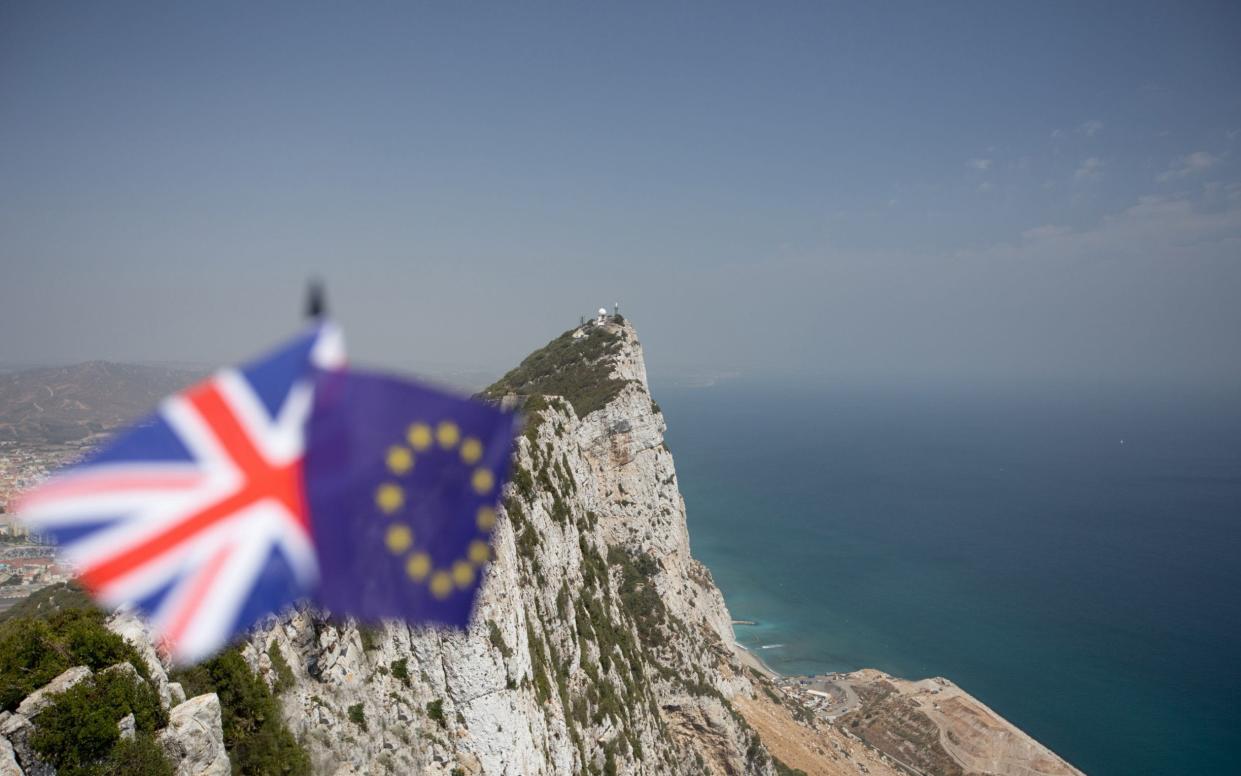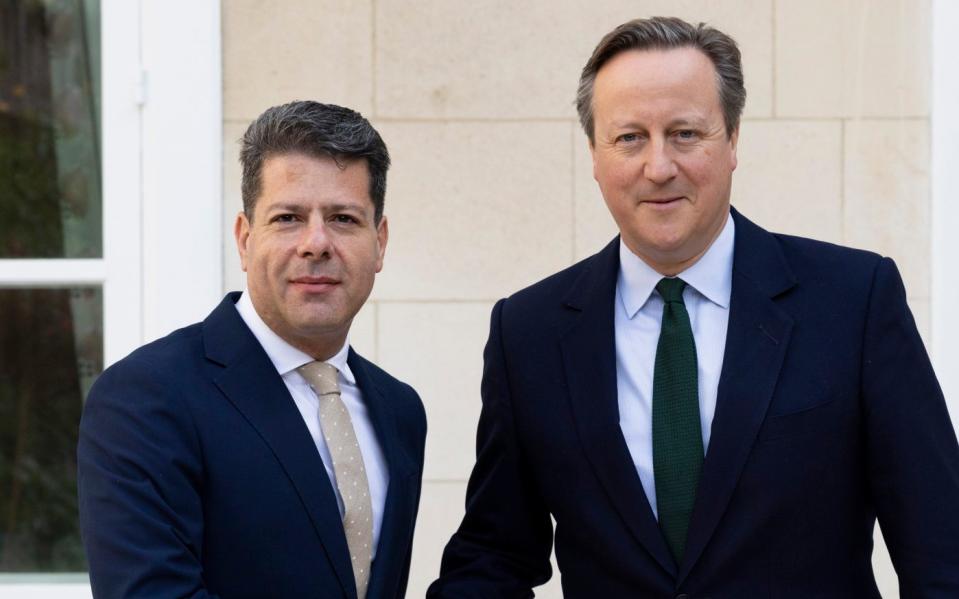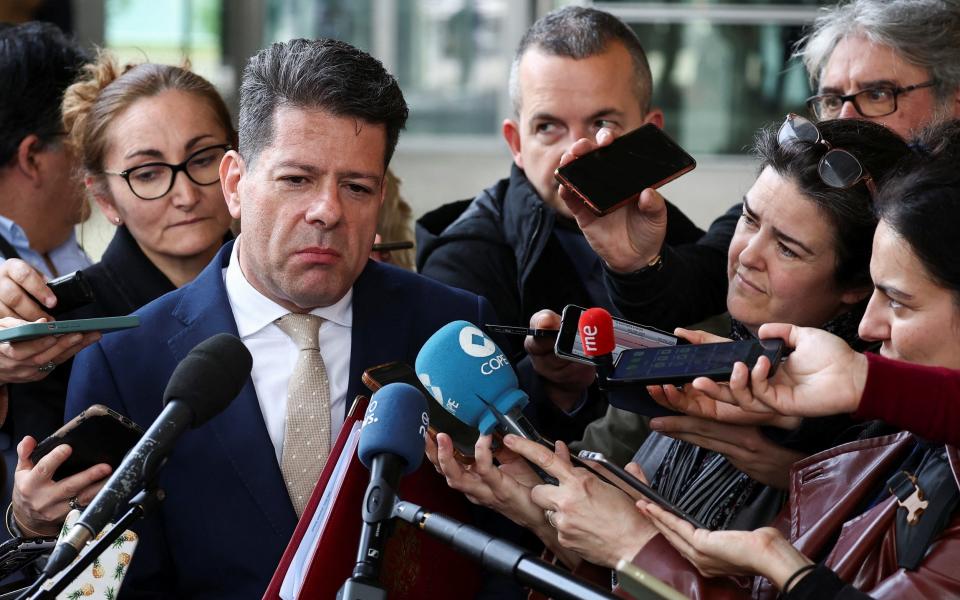Gibraltar disputes could be decided by European judges under new Brexit deal

European judges would be able to rule on disputes involving Gibraltar under a new Brexit deal being negotiated with Brussels, ministers have admitted.
The Foreign Office said the terms of the pact would mean that the Rock territory had to follow some EU rules in return for a more open border with Spain.
Tory MPs said the revelations raised “a fundamental question” about whether the Government is trading away sovereignty in the talks, amid speculation an agreement will be signed imminently.
David Rutley, the UK minister for Gibraltar, told the Commons European Scrutiny Committee that defending British sovereignty was a “red line”.
Lord Cameron, the Foreign Secretary, is leading negotiations with the European Union over a new deal to end a four-year post-Brexit impasse.
A specific agreement covering the territory is needed because, at Spain’s insistence, it was not included in the wider EU-UK trade pact struck in 2019.
Officials announced in April, following months of talks, that they had shaken hands on the “core elements” of a prospective deal.
Madrid, which still claims sovereignty over Gibraltar, is said to be pushing for the treaty to be signed before this year’s European Parliament elections on June 6.
However, senior MPs have expressed “considerable alarm” over the concessions the UK has agreed to in the talks, including on the role of the European Court of Justice (ECJ).
Robbie Bulloch, the Foreign Office mandarin leading the negotiations, admitted that the Luxembourg-based ECJ would have some influence.
He told MPs that while it would not enforce the “direct application” of EU rules on the Rock there “may be cases where there may be [a] referral”.

Under the deal, in return for a more open border Gibraltar’s government would have to pass laws which Brussels deemed to be equivalent to its own.
If complaints arose over issues like unfair competition they would go to the Rock’s own courts, which could then refer matters of EU law up to the ECJ.
Ending the powers of the European Union’s top court over the UK became totemic for Brexiteers and was a key part of the campaign to quit the bloc.
‘Very serious matter’
Sir Bill Cash, the chairman of the committee, warned ministers that its role in Gibraltar was “a fundamental question and it relates directly to sovereignty”.
“I sincerely trust that the Government and the Foreign Secretary are well aware of the fact that any expansion or indirect application of the ECJ’s jurisdiction to matters relating to these issues will be regarded as a very, very serious matter,” he said.
MPs also expressed alarm at plans for EU border guards to carry out immigration controls at Gibraltar’s airport to open up the Spanish border.
Checking arrivals there would allow the Rock to join the passport-free Schengen Zone, eliminating the need for identity controls at its border with Spain.
That is expected to include people travelling to the territory from the UK who, from later this year, would have to provide their fingerprints to enter.
The agreement would also open up air travel between Gibraltar and the EU for the first time since Brexit. Such flights were available before, though few were offered.
‘Considerable alarm’
David Jones, a former Brexit minister, expressed fears that “British sovereignty is being compromised as a consequence of what is being proposed”.
He told Mr Rutley and Mr Bulloch: “You’ve caused considerable alarm to me. We’re talking about foreign border officials operating on British soil, about [the] potential for refusal of access of British citizens to British territory. This is all extremely worrying.
“We’re talking about, it seems to me, a significant diminution of British sovereignty that the Government is quite happy, apparently, to play along with.”

Mr Rutley insisted the Government of Gibraltar, led by Fabian Picardo, the chief minister, was keen for the proposed deal to go ahead.
He said: “The UK will only reach an agreement with the EU on Gibraltar which the Government of Gibraltar is content with, which safeguards Gibraltar’s sovereignty and which fully protects the operations and independence of the UK’s military facilities in Gibraltar.
“These are effectively our red lines, they have been from the start. We’re not going to do a deal that isn’t the right deal.
“We also continue to work closely on preparing to ensure robust contingency plans are in place for all eventualities including a no negotiated outcome.”

 Yahoo News
Yahoo News 
